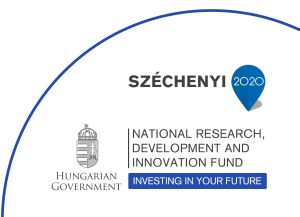Reconfigurable ROS-based Resilient Reasoning Robotic Cooperating Systems (R5-COP)

R5-COP focuses on agile manufacturing paradigms and specifically on modular robotic systems. Based on existing and newly developed methods for a formal modeling of hardware and software components, R5-COP will support model-based design, engineering, validation, and fast commissioning. Using existing interface and middleware standards R5-COP will strongly facilitate integration of components from various suppliers.
|
Beneficiary: Budapest University of Technology and Economics |
 |
R5-COP will be providing a platform and toolset containing methods, algorithms, prototypes, and living labs solutions for cross-domain reusability, scalability, and open interface standards for robotic and autonomous systems.Key results of R5-COP will be demonstrated in a set of show-cases, displaying high relevance to industrial and manufacturing issues and cross-domain applicability. Regarding interoperability, R5-COP will also contribute to establishing a standard for robust, reliable reconfigurable robot systems using common interfaces in a certification and safety context, which entails conformity to both domain-specific standards and international domain-independent standards. By enabling use of highly flexible robots in safety-critical (fenceless) environments, the project fosters a significant increase in market potential. The actual impact of R5-COP will be evaluated against its influences on the standards, scientific-technological viewpoints towards reconfiguration in SMEs, and paradigm change towards using reliable, safe, and easy reconfigurable robotics.
The main objective of the R5-COP project is to provide the means for a fast and flexible adaption of robots to quickly changing environments and conditions to enable a safe and direct human/robot cooperation and interaction at an industrial scale. To overcome the shortcomings of existing robotic solutions, it focuses on the following objectives:
- Enabling fast and flexible re-composition of software and hardware components of robotic systems, and ensuring their robust and safe operation through modular design of the components with formalized specifications and standardized interfaces.
- Enabling simple design and implementation of software components through using ROS industrial for software deployment and SDKs for software development.
- Enabling flexible (re)configuration using ontologies of configurable components for modeling hardware, and modeling applications on an app or skill level.
- Ensuring robust perception using advanced reconfigurable sensor systems modules.
- Supporting component and system certification for safe human/robot cooperation using dedicated V&V techniques
- Identifying, modeling, developing, and evaluating key hardware and software components using dedicated use-cases from industrial and service domains.
As project partner. BME will contribute to the development of methods and solutions for sensor systems, intelligent learning and reasoning, model based design, incremental testing, and runtime verification.
Documents and publications |


